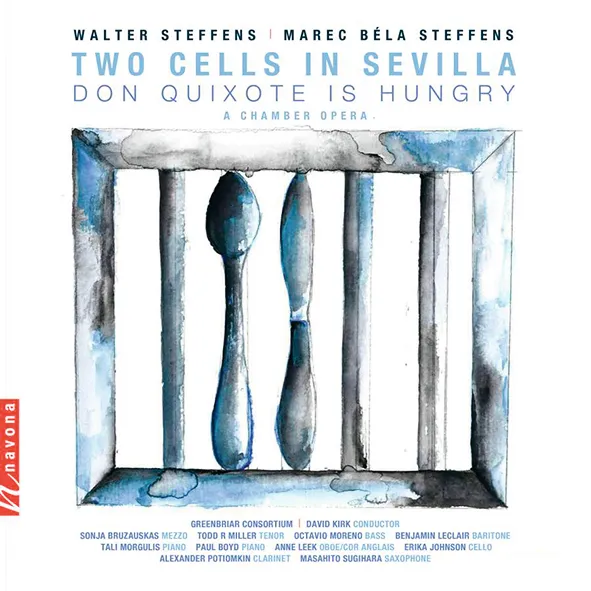
W Steffens Two Cells in Sevilla (Don Quixote is Hungry); Five Songs on Hölderlin* Sonja Bruzauskas (mezzo-soprano), Todd R Miller (tenor), Benjamin LeClair (baritone), Octavio Moreno (bass), *Tali Morgulis (piano); Members of the Greenbriar Consortium/David Kirk Navona Records NV 6174 50:27 mins
Two Cells in Sevilla, or Don Quixote is hungry, Op. 106 is a curiously imaginative chamber opera created by composer Walter Steffens (b 1934) and librettist Marec Béla Steffens. The father and son team premiered the work in Houston, Texas, back in 2016, and this is the first recording.
The story centres around two inmates, a monk and a nobleman, and how they each capture the attention of the cook (Sonja Bruzauskas) to fill their empty stomachs. Steffens senior knows the genre well, having written several operas, and his scoring makes effective use of woodwind, unusually featuring a saxophone along with oboe/cor anglais, clarinet, cello and piano. The libretto becomes bizarrely meta, as the monk is revealed to be the inventor of fictional womaniser Don Juan – among other inside nods to the genre – and the narrative becomes fussy and unnecessarily complex for a 35-minute work. The opera is coupled with Five Songs on Hölderlin, Op. 95, also performed by Sonja Bruzauskas. Setting texts by Friederich Hölderlin, the mini-cycle is written within the traditional Lieder idiom, with 20th-century modernist influences. While ‘Sonnenuntergang’ and ‘Die Linien des Lebens sind verschieden’ are fragmented, the other pieces meander and the disparate style is not wholly successful.
Claire Jackson
